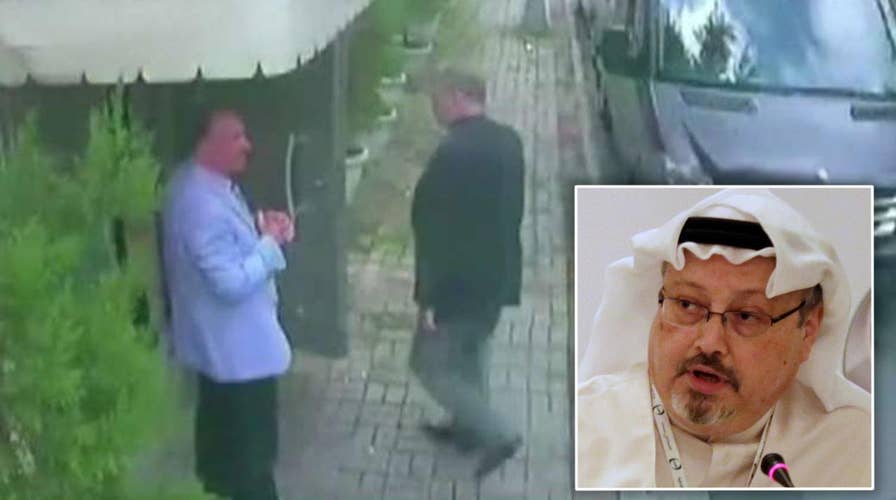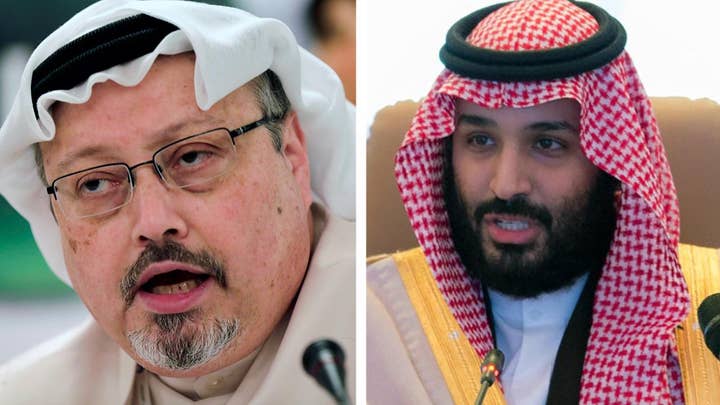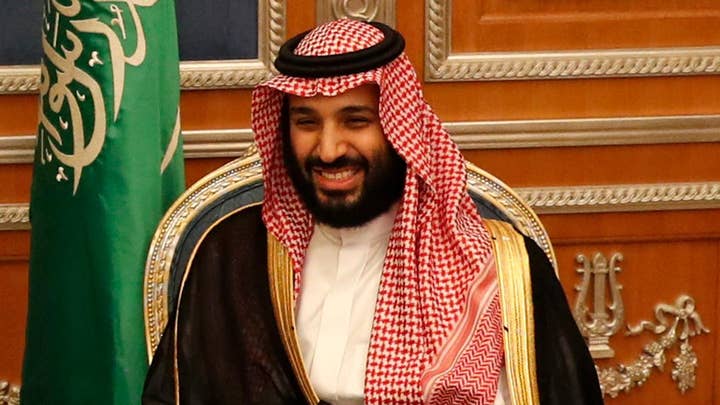Report: Recordings prove killing of Jamal Khashoggi
Turkish officials reportedly have recordings proving Saudi columnist was killed. Rich Edson has more from the State Department.
The Washington Post on Wednesday night published what the paper called Jamal Khashoggi's "last" column he submitted before the activist vanished during a visit to the Saudi Consulate in Istanbul.
Atop the opinion piece, titled “What the Arab world needs most is free expression,” Karen Attiah, the Global Opinions editor, shared a note explaining that the newspaper initially postponed releasing the piece “because we hoped Jamal would come back to us so that he and I could edit it together.”
“Now I have to accept: That is not going to happen. This is the last piece of his I will edit for The Post,” Attiah wrote.
Following Khashoggi’s disappearance at the consulate, Turkish officials have said they feared he was killed and dismembered inside.
Saudi officials have called the allegations “baseless," but multiple media outlets reported Monday that the Saudi government has considered saying rogue intelligence operatives murdered Khashoggi by mistake inside the kingdom's consulate in Istanbul earlier this month during an interrogation that went wrong.
In the column, Khashoggi discussed the results of the 2018 "Freedom in the World" report and said he "came to a grave realization" that Tunisia was the "one country in the Arab world that has been classified as 'free.'" Three other countries were given "partly free" status, while the remaining were labeled as "not free," he said.
"As a result, Arabs living in these countries are either uninformed or misinformed," he wrote. "They are unable to adequately address, much less publicly discuss, matters that affect the region and their day-to-day lives. A state-run narrative dominates the public psyche, and while many do not believe it, a large majority of the population falls victim to this false narrative. Sadly, this situation is unlikely to change."
Khashoggi discussed an apparent optimism in Arab countries in 2011 during the "Arab Spring." People "expected to be emancipated from the hegemony of their governments and the consistent interventions and censorship of information," he said.
However, such notions were "quickly shattered," he said, adding that things returned to how they'd been before or had gotten worse.
He went on to mention the "unwarranted" imprisonment of a friend who was a writer, and described a lack of response "from colleagues" at "the Egyptian government's seizure of the entire print run of a newspaper, al-Masry al Youm."
SAUDI CROWN PRINCE IN THE SPOTLIGHT AFTER KHASHOGGI'S DISAPPEARANCE
"These actions no longer carry the consequence of a backlash from the international community. Instead, these actions may trigger condemnation quickly followed by silence," he wrote.
Khashoggi asserted that Arab governments were allowed full authority “to continue silencing the media at an increasing rate." They have "aggressively blocked the Internet," taken journalists into custody and "pressured advertisers" in order to monetarily hurt certain media outlets, he added.
There are some bright spots in the region, such as in Qatar where the "government continues to support international news coverage," Khashoggi said.
SEN. RAND PAUL: TIME TO RETHINK AMERICA'S RELATIONSHIP WITH SAUDI ARABIA
But "the Arab world is facing its own version of an Iron Curtain," he wrote, "imposed not by external actors but through domestic forces vying for power." He stressed the need to find a way to inform Arab people about news around the world.
"The Arab world needs a modern version of the old transnational media so citizens can be informed about global events. More important, we need to provide a platform for Arab voices," Khashoggi said. "Through the creation of an independent international forum, isolated from the influence of nationalist governments spreading hate through propaganda, ordinary people in the Arab world would be able to address the structural problems their societies face."
In the editor's note, Attiah said Khashoggi's “column perfectly captures his commitment and passion for freedom in the Arab world.”
“A freedom he apparently gave his life for," Attiah continued. "I will be forever grateful he chose The Post as his final journalistic home one year ago and gave us the chance to work together.”
This is a developing story; check back for updates. Fox News' Alex Pappas and Samuel Chamberlain contributed to this report.











































